
Ingredient
Salad burnet
The Refreshing Herb
Salad burnet is a perennial herb with small, serrated leaves that resemble those of a strawberry plant. It has a refreshing and slightly cucumber-like flavor, with a hint of herbal notes. The leaves are often used fresh in salads, dressings, and as a garnish to add a touch of freshness and visual appeal to dishes.
Origins and history
Salad burnet is native to Europe and has been cultivated for culinary and medicinal purposes since ancient times. It was historically used for its medicinal properties, including its diuretic and digestive benefits. Today, salad burnet is primarily grown for culinary purposes and is a popular herb in European cuisine.
Nutritional information
Salad burnet is low in calories and a good source of vitamins A and C. It also contains minerals such as potassium and calcium. The herb is known for its diuretic properties and has been used traditionally to support digestion and promote urinary health.
Allergens
Salad burnet does not have any known allergens and is generally well-tolerated by most individuals. However, individuals with known allergies to plants in the Rosaceae family, such as strawberries or roses, may want to exercise caution.
How to select
When selecting salad burnet, look for fresh leaves that are vibrant green in color and free from wilting or discoloration. The leaves should have a crisp texture and a fresh aroma. If purchasing from a farmers market, choose organically grown options for the best quality and flavor.
Storage recommendations
To prolong the freshness of salad burnet, store it in a plastic bag or airtight container in the refrigerator. It can be kept fresh for up to a week. Before using, rinse the leaves gently under cold water and pat dry with a paper towel.
How to produce
Salad burnet can be easily grown in home gardens or containers. It prefers well-drained soil and partial shade. Sow the seeds in spring or early summer and keep the soil consistently moist. Harvest the leaves as needed, ensuring to leave some foliage for the plant to continue growing.
Preparation tips
Salad burnet leaves can be used fresh in salads, sandwiches, and dressings to add a refreshing and slightly cucumber-like flavor. They can also be infused in water or used as a garnish for cocktails, fruit salads, or desserts. The delicate leaves make an attractive addition to cheese platters or as a decorative touch to savory dishes.
Culinary uses
Salad burnet is primarily used in culinary applications, particularly in European cuisine. It is commonly used in salads, dressings, and as a garnish for various dishes. Its refreshing flavor and delicate appearance make it a popular choice for adding a touch of freshness to culinary creations.
Availability
Salad burnet is widely available in Europe, particularly in countries such as France, Germany, and the United Kingdom. It can also be found in some specialty grocery stores or farmers markets in other regions.
More ingredients from this category » Browse all
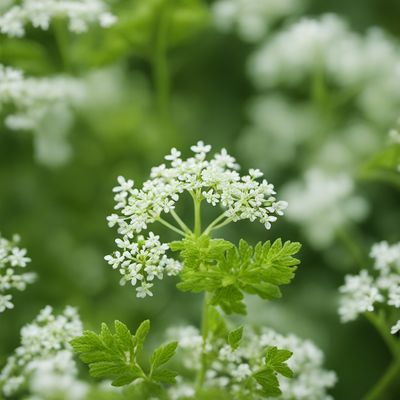
Sweet cicely
The Delicate Herb: Unveiling the Secrets of Sweet Cicely
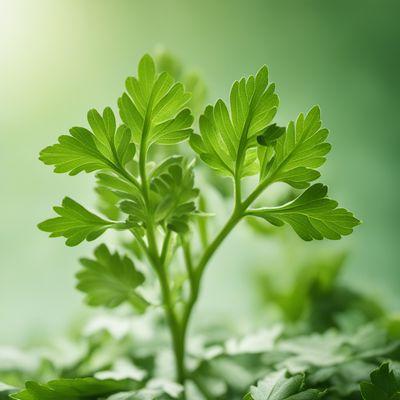
Lovage leaves
The Herbaceous Elixir
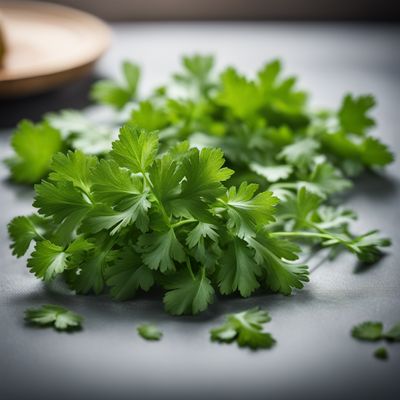
Coriander leaves
The Vibrant Herb: Unveiling the Magic of Coriander Leaves

Herb of grace
The Divine Herb: Unveiling the Secrets of Herb of Grace

Fenugreek leaves
Aromatic Herbaceous Delight

Pimpernel
The Scarlet Beauty: Pimpernel's Vibrant Flavors

Culantro leaves
The Vibrant Herb: Culantro Leaves

Sorrel
The Tangy Herb: Unveiling the Secrets of Sorrel

Burnet
The Herb of Coolness

Fennel leaves
The Fragrant Herb: Unveiling the Delights of Fennel Leaves
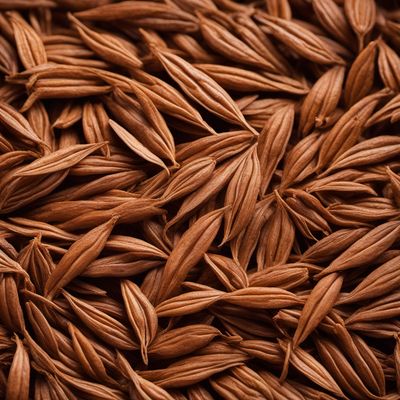
Caraway leaves
The Aromatic Herb: Unveiling the Secrets of Caraway Leaves
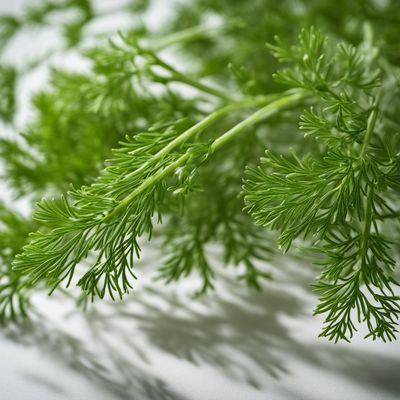
Dill leaves
The Delightful Herb: Dill Leaves
